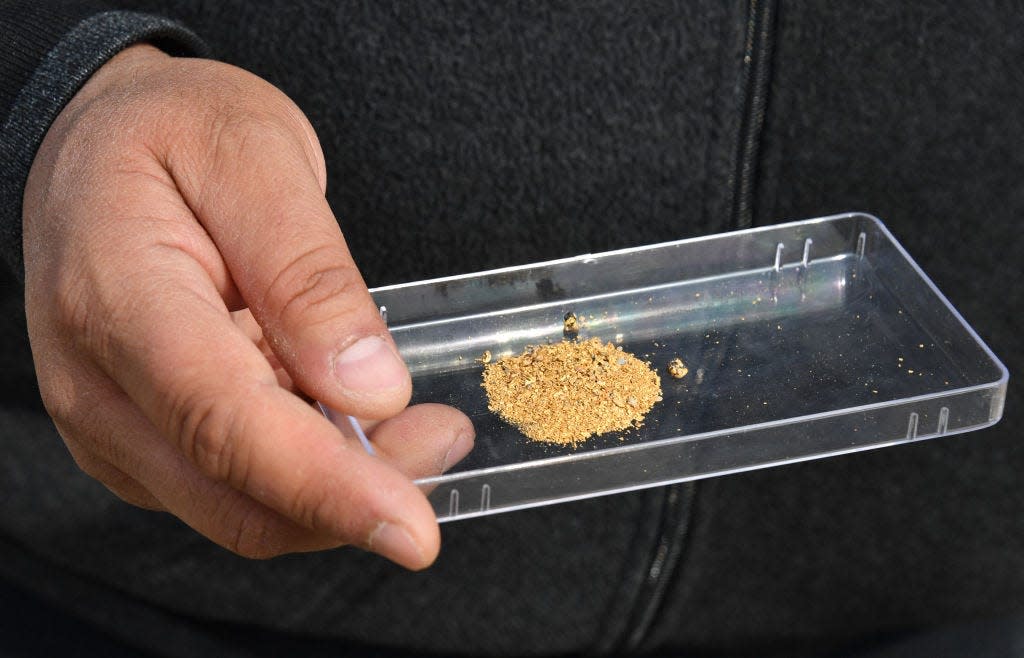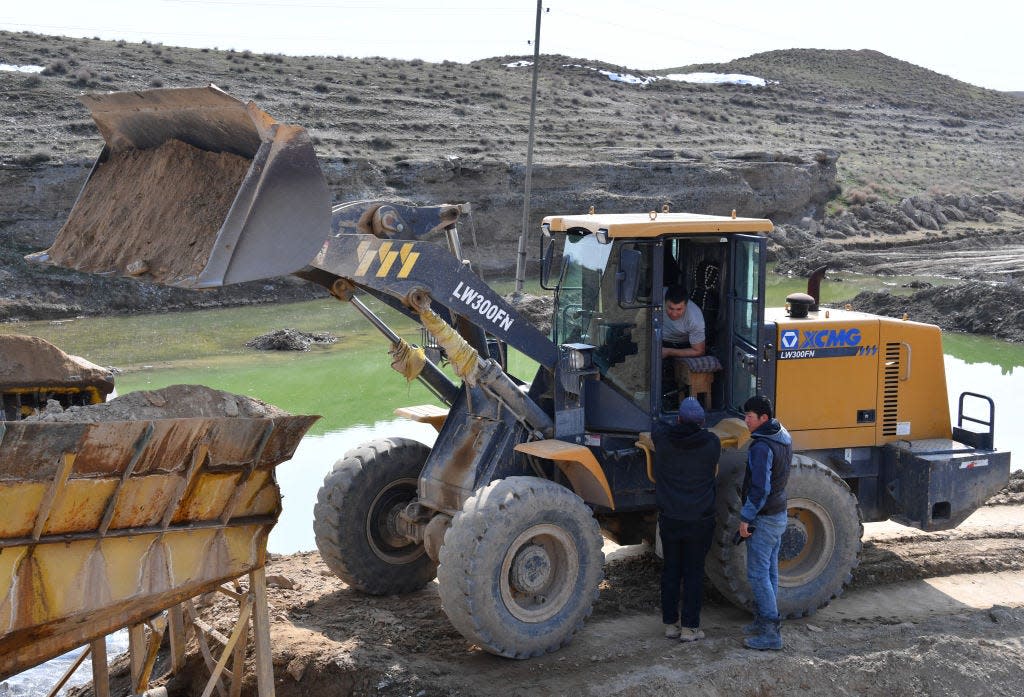Some central banks have sold gold at record prices, cashing in on the global boom

Central banks' gold buying has driven gold prices to record highs.
Consumer and retail investors, too, are snapping up gold as a store of value amid economic and geopolitical uncertainties.
However, some central banks are selling gold — chief among them is Uzbekistan.
Central banks around the world have been snapping up gold, sending prices of the metal to record highs.
Consumers and retail investors, particularly in China, have also been buying up gold as a time-tested store of value amid macroeconomic and geopolitical uncertainties.
On Monday, the spot gold price hit a record high of around $2,440 per ounce, up about 17% this year to date. The high came on the heels of political uncertainties in the Middle East, after Iran's president died in a helicopter crash and amid the Saudi king's health concerns.
In 2022, global gold demand came in at nearly 4,700 tons — outstripping 3,628 tons of mined production that year, according to the latest available data from the World Gold Council.
Uzbekistan's central bank is a big seller
While many central banks are now hoarding gold, some have sold in the last few months to take cash in on current sky-high prices.
In the first quarter of this year, the Central Bank of Uzbekistan was the biggest net seller of gold, disposing of 10.9 tons of the precious metal in March and 11.8 tons in February. Meanwhile, Thailand — which had been accumulating gold for years — sold 9.6 tons in March, according to WGC data.
Uzbekistan's bumper first-quarter sales followed its selling streak last year when it was the second-largest seller of gold after neighboring Kazakhstan, which was selling gold to rebalance its reserves.
Uzbekistan, too, said last year it was rebalancing its reserves by cutting the proportion of gold. In 2022, Uzbekistan bought a lot of gold as a safe asset amid the COVID-19 pandemic. The country's gold stash accounted for nearly three-quarters of its reserves as of March this year, according to WGC data.
Uzbekistan has a natural advantage as a seller since it's also a large gold producer. So "the swings between buying and selling we have seen in recent years are not wholly surprising," wrote the WGC in a January report, referring to the activities of both the Uzbek and Kazakh central banks last year.
In 2022, Uzbekistan produced 110.8 tons of gold, making it the 10th top gold producer in the world, per WGC. The central Asian nation exported $8.2 billion of gold last year, according to the country's Kun.uz media outlet.

Gold rush in Uzbekistan
It's a bonanza for Uzbekistan's economy, which posted a record-high trade deficit of $13.7 billion last year. The country's local currency, the Uzbekistani som, is also under pressure and has been on an extended multi-year decline. The som slumped 10% against the US dollar in the past 12 months alone.
According to an AFP report in March, there may be a lot more gold to be found in Uzbekistan because much of the country's land has yet to be explored for gold.
Uzbek President Shavkat Mirziyoyev has ordered gold production to increase by 50% by 2030. The gold rush is creating jobs in the country, the AFP reported. The country legalized private gold digging in 2019, and any gold found must be traded via its central bank.
Uzbekistan exported $2.66 billion worth of gold in the first quarter of this year, which accounted for about 40% of the country's total exports, per Kun.uz, citing official figures.
Read the original article on Business Insider
